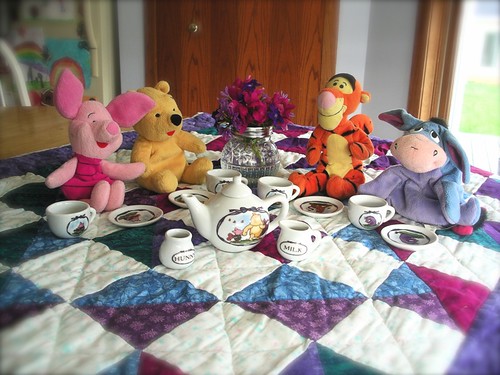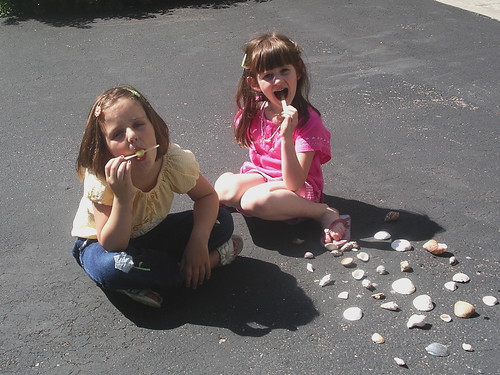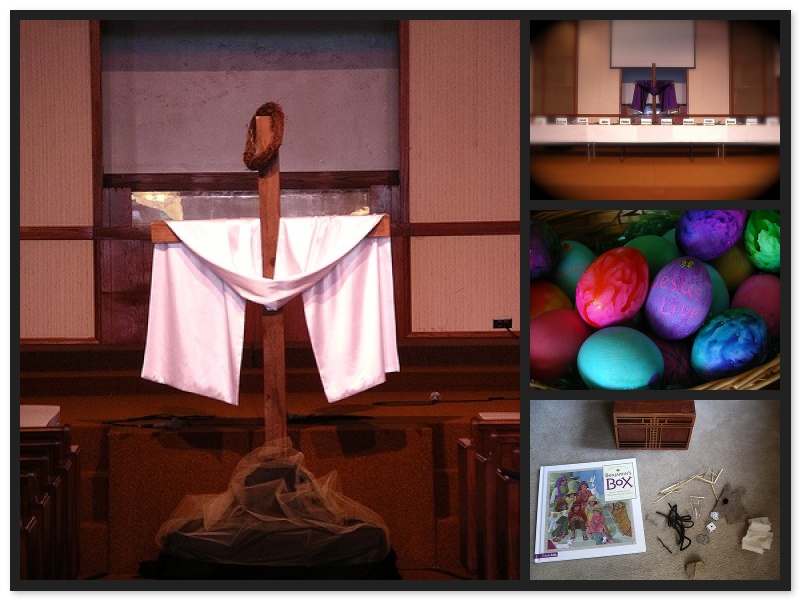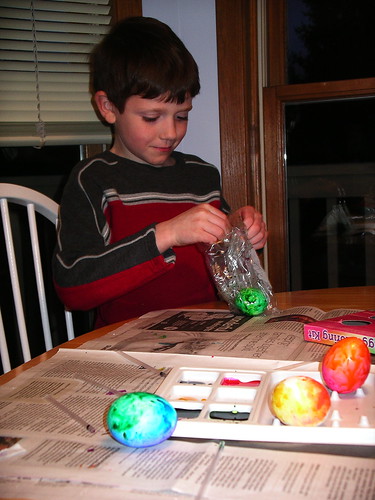 This morning our eight year old got out of bed, went to the kitchen and turned on all the lights. Very unusual, since he has an aversion to bright light first thing in the morning. When I got to the kitchen he said, "Santa is sure to find us with all these lights!" A true believer.
This morning our eight year old got out of bed, went to the kitchen and turned on all the lights. Very unusual, since he has an aversion to bright light first thing in the morning. When I got to the kitchen he said, "Santa is sure to find us with all these lights!" A true believer.By the time he was four, we knew we really needed a plan for how to handle Santa. We're not really into the buildup about gifts and thinking up a list of things we want. (Part of our "contentment thinking" philosophy. More about that here.) But Santa is inevitably, and happily, part of Christmas in America, and what parent really wants to suck the fun out of Christmas? We asked around about people's experience with Santa, and resonated with the friend who said her parents basically didn't give any indication one way or the other.
So I took the kids (then ages 4 and 2) to the store one day, and let each of them pick a roll of wrapping paper. (Hot Wheels and Dora.) They were already telling us that Santa was coming. On Christmas there were presents wrapped in their chosen paper with no tags indicating "to" and "from". The kids immediately identified which ones were theirs and credited Santa (who, by the way, had impeccably good taste in gifts for a guy who hadn't been given any direction!). Ben was more than astute enough to have made the connection between the paper he chose and the gifts he opened.
It's been fascinating to watch this pattern of belief unfold. This year for the first time I'm told there must be cookies left for Santa. "Really? Well, cookies it is then." (Bethany is saving some that she decorated at church a week ago.)
And what does this have to do with faith?
I recently read this quote from C.S. Lewis from an essay describing his use of fantasy to convey spiritual truth. "I thought I saw how stories of this kind could steal past a certain inhibition which had paralyzed much of my own religion in childhood. Why did one find it so hard to feel as one was told one ought to feel about God or about the sufferings of Christ? I thought the chief reason was that one was told one ought to. An obligation to feel can freeze feelings."
I've been doing some online reading these days that has caused me to reflect on whether we're teaching our kids that faith, worship, giving and service are obligations based on how they "ought to feel about God or about the sufferings of Christ". Honestly, we have tried not to do this, but rather to set the example of putting our own love for Christ into action. It's good to check ourselves, because we could run the risk of sucking the joy out of the journey of faith for our kids if we try to determine the course for them.
I'm NOT advocating that we should try to avoid influencing our children's faith foundations. But I am wanting to be intentional about letting God be God in their lives. I want to allow Him the freedom to woo them into relationship, just as He did me. I want them to respond to Him in love and gratitude as He shows them who He is. I want to be sure not to throw obstacles of legalism in their path that would confine them to a religion of duty rather than a love affair with an almighty God and merciful Savior who calls them "my child", and "friend".
There can be no doubt that our kids have chosen Santa for themselves, by following the example of other joyful believers. And so far they have also chosen Jesus. May we encourage them to own their relationships with Him, much more by our joyful following than anything we tell them they must do or think or feel.
 (Note: Santa is also a joyful believer who points out the real meaning of Christmas in Santa's Favorite Story by Hisako Aoki. HIGHLY recommended!)
(Note: Santa is also a joyful believer who points out the real meaning of Christmas in Santa's Favorite Story by Hisako Aoki. HIGHLY recommended!)

















































